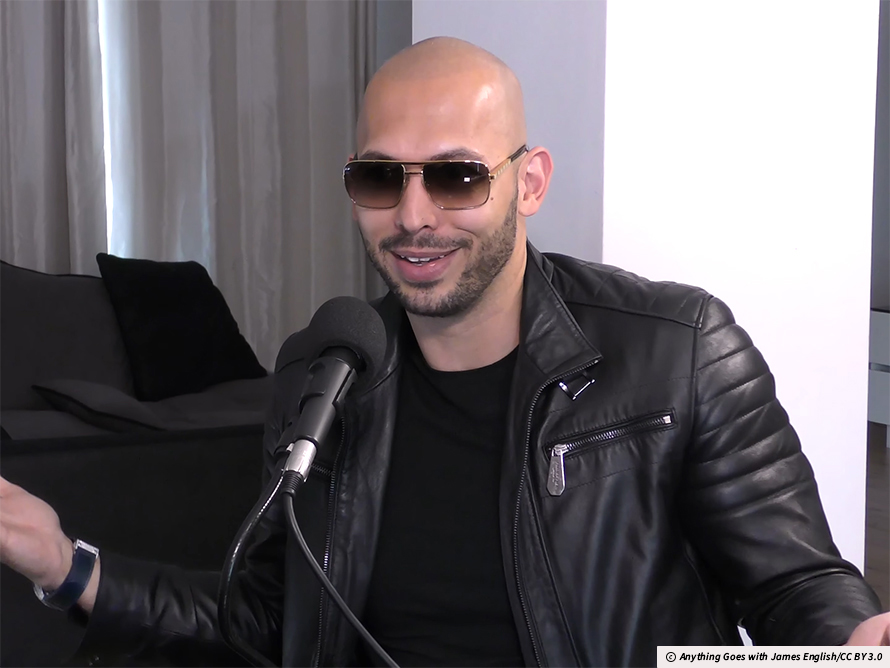Andrew Tate is a controversial man, but does he lead a cult? Lily Atkinson, 17, from New College Huddersfield investigates.
Hated by human rights activists and a beloved icon of the self-identifying “real man”, Andrew Tate has acquired a cult-like following. So very cult-like in fact, it proposes questions on how we classify a cult.
The ex-Big Brother contestant and self-proclaimed “hustler” has garnered a significant following where he preaches an ideology that promotes misogyny and a toxic form of masculinity, which is often disseminated through social media.
So Tate is psychologically manipulative. So what? How does that support the fact that his following is supposedly a cult? Researchers tend to classify cult relationships as having certain factors, one of which is manipulation. Not only does Tate fit this classification, but he fits several other “cult criteria”.
A cult needs a charismatic leader: Tate’s confident and assertive personality attracts followers who admire his perceived success and dominance.
As already mentioned, cults employ manipulation tactics: Tate uses psychological tactics to control his followers, exploiting their insecurities and fears.
Cults are also defined as being communities: Tate creates a sense of belonging in members through his exclusive online platforms, fostering loyalty and social validation.
Cults are said to exploit their followers, and Tate monetises his via paid content and membership fees. They are also defined as having a radical ideology: Tate indoctrinates his followers with harmful beliefs, promoting a rigid and binary view of gender roles.
In fact, Andrew Tate’s ideology reinforces harmful stereotypes about women’s roles in society, contributing to a culture of sexism and objectification. Women are often portrayed as inferior and subservient, promiscuous, or as radical feminists (“feminazis” even). This damages women by forcing them into restrictive roles and reaffirms these beliefs in young boys, leading to unrealistic and harmful expectations.
Tate’s ideology also impacts men by promoting a narrow and unrealistic definition of masculinity, emphasising dominance, aggression, and emotional suppression. Constant aggression and denial of emotions can lead to mental health disorders and, in extreme cases, suicide. His ideology shames men who take a more nuanced approach to life, playing on gender insecurity to gain support.
Cults are harmful because they exploit followers, manipulate their beliefs, and create dependency on a leader. They often isolate followers from outside influences, making it difficult for them to leave or question the ideology. This can lead to extremism and radicalisation.
You might say that Andrew Tate is not the only influencer who shows these characteristics. In fact, many do. Does that mean that they too lead cults?
Very possibly.
Social media could be seen as a massive cult, creating a sense of community and belonging while allowing influencers to manipulate users’ beliefs and behaviours.
Unlike traditional cults, social media is decentralised and not controlled by a single leader. Algorithms and influencers can manipulate users similarly to cult leaders, but the platform itself serves various purposes.
In conclusion, Andrew Tate’s ideology and tactics negatively impact both women and men by promoting toxic masculinity and harmful gender stereotypes. His following exhibits many cult-like characteristics, although some may argue that this is just symptomatic of the broader cult-like nature of social media.
Interested in submitting your own Student Voices article or video? Find out more here.
References:
The Dangerous Philosophy of Andrew Tate – Newsweek
Intelligence Squared: Inside Andrew Tate’s Manosphere, with Matt Shea and Jamie Tahsin on DeepCast
Understanding Cults: The Basics | Psychology Today
How being in a cult can affect your mental health
How Social Media Features Parallel Cult Techniques – Center for Humane Technology



